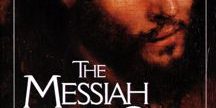
The Messiah in the Old Testament
 Walter C. Kaiser Jr.The Messiah in the Old Testament.Grand Rapids: Zondervan, 1995.
Walter C. Kaiser Jr.The Messiah in the Old Testament.Grand Rapids: Zondervan, 1995.
I have a tendency to overstate my case. I can get excited about this or that idea and too quickly claim it’s the best in its category. I know I shouldn’t, but it’s easy to do. Therefore, I will summarize my opinion of Walter Kaiser’s The Messiah in the Old Testament in a very clear-headed, self-controlled, accurate manner in the following statement: This book transformed my view of the Old Testament and just might be one of the most important books I have ever read. And that’s no exaggeration.
As the title indicates, The Messiah in the Old Testament is a study of the theme of Messiah unfolding in the first 39 books of the Bible. After an introductory chapter where he explains his methodology, Kaiser then moves the reader chronologically through sixty-five direct predictions of the Messiah. He does not delve into the Messiah as revealed in types or the rituals of Old Covenant worship but limits himself to those passages where he believes the promises of a coming Redeemer-King can be derived through plain, historical-grammatical exegesis. These sixty-five predictions are carefully examined and then the book ends with a short chapter drawing a few conclusions.
For me, the total force of the book was overwhelming. Somehow I never realized how much explicit Messianic prophecy is contained in the Old Testament. I was reared thinking that Old Covenant saints were saved through some vague faith in Jehovah and had little, if any, understanding of the Messiah. I knew that this didn’t harmonize with the New Testament’s reading of the Old Testament (e.g., Hebrews 11), or Jesus’ criticism of the Pharisees (John 5:39), but I just chalked that up to some mystery of God.
Kaiser convinced me that there is in the Old Testament a clear hope of Messiah that is the center of Old Covenant religion and spirituality (and that hope can be discerned through normal principles of exegesis). Certainly this hope develops throughout the First Testament with increasing clarity, but even from the very beginning (Genesis 3:15), God’s people were seeking a Redeemer. This hope continued right up to the time of Jesus, who undeniably fulfills all these Old Testament predictions.
For me personally, the long-term ramifications of reading The Messiah in the Old Testament are four. First, and obviously, The Messiah in the Old Testament has permanently altered the way I read a number of specific Old Testament passages (and the way I will, Lord willing, eventually preach these passages). Had you asked me before reading this book, how many explicit predictions of the Messiah are in the Old Testament, I would have guessed around 10 or 12. I had no idea that there were 65 (and that’s in addition to the Messianic types, rituals, theophanies, shadows, etc.). Now, after studying through these passages, I see that Jesus is revealed in so many places in the Old Testament, places which I had just never slowed down and taken the time to read carefully. And even if Kaiser’s exegesis is incorrect in a handful of passages, that’s still an enormous amount of prophetic material describing and individual long before his birth.
Second, considering how many and how descriptive the Old Testament pictures of Messiah actually are has deepened my conviction that the Bible is the Word of God. Obviously, only God knows the future. But to reveal this much material about the Coming Deliverer in such minute detail hundreds (and in some cases maybe thousands) of years in advance is really shocking, and testifies that the Bible is indeed God-breathed.
Third, seeing the Messiah throughout the entire Bible has deepened my assurance of the unity of the Bible. It’s not as if God’s people had one hope in the Old Testament and another in the New Testament. They are always looking for the Savior. And furthermore, if the Bible has a clear and strong unity, this further testifies to its divine inspiration. And lastly, seeing how clear the hope of the Messiah is in the Old Testament has deepened my conviction that salvation is always by faith alone in Christ alone. The Gospel of Sola fide is not something Paul dreamed up or a plan-B that kicked in after Israel rejected Jesus but has been the one way of salvation since Adam and Eve left the Garden. And if this is true, then all nations must desperately hear this Gospel today.
It’s no overstatement to say that I thank God for Dr. Kaiser and The Messiah in the Old Testament and plan to return to it frequently throughout my ministry. I can’t imagine a book I would more highly recommend to every pastor or Bible teacher.
Timothy Raymond is an editor for Credo Magazine and has been the pastor of Trinity Baptist Church in Muncie, Indiana since April 2006. He received his MDiv from the Baptist Bible Seminary of Pennsylvania in 2004 and has pursued further education through the Christian Counseling and Educational Foundation. Tim grew up outside Syracuse, NY and previously served at Berean Baptist Church, Nicholson, PA (member and teacher during college and seminary) and Calvary Baptist Church, Sandusky, Ohio (seminary internship location). Tim met his wife Bethany at college, and they were married in May 2001. Tim enjoys reading, weight-lifting, wrestling with his three sons, and attempting to sleep.
